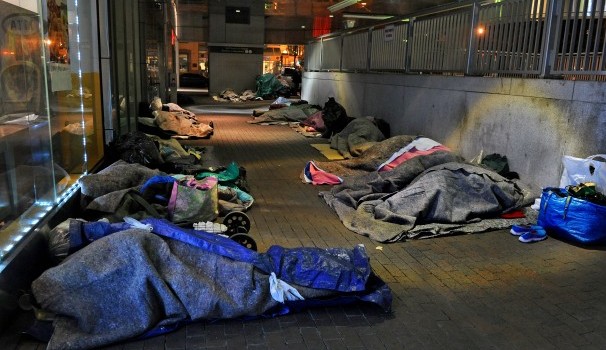Ever since President Donald Trump’s travel ban was put into effect about two weeks ago, the internet was set on fire with opinions concerning the purpose of the ban and what it is attempting to accomplish. I was scrolling through my Facebook feed recently when I noticed a post that included a meme that read something along the lines of “as long as there is one homeless child in America, we have no room for refugees.” The post stood out to me because it was one of the first arguments against Syrian refugees that I couldn’t disagree with immediately. It’s difficult to disagree with a picture of a presumably homeless child, which the post was using to illustrate its point. However, the more that I thought about the argument, the more it seemed to me that it wasn’t as convincing as it originally seemed to be, mainly because it is using one problem to combat another problem. Instead of grasping at straws to make excuses to not give aid to these suffering refugees, we need to come up with creative ways to help our own and help other people in the world as well.
Homelessness is a problem that unfortunately plagues not only the United States, but most countries in the world. It does not mean that it isn’t a serious issue and that we should not be taking steps to eradicate it, but using homelessness as a reason to not help resolve other issues in the world is extremely problematic. We should be working to help homeless people as well as refugees — it should not be an either-or situation. It’s not like we don’t have the resources. Much smaller countries than the United States, including Turkey, Italy and Greece just to name a few, have welcomed vast numbers of refugees over the past year. In comparison with these nations, the United States is really failing to pull its weight. Taking care of your own is important, but it should never mean that one is completely incapable of providing even a little aid to others in the world that we all share.
It’s not as if the United States has a strict code about only caring for our own problems either. We have a long history of sending our armies into other countries to fight corrupt governments and attempting to bring some form of democracy to the people who have suffered under oppressive rulers. The Korean War, during which the United States sent soldiers to help South Korea fight communist North Korea, is an instance of our global involvement. During the war that lasted from 1950 to 1953, there was certainly poverty that plagued the people of the United States, but that didn’t stop the U.S. from helping another country in need of assistance. The Korean War is a controversial topic, but the point that I am trying to make by bringing it up is that we don’t normally make a practice of letting domestic problems keep us from dealing with international problems. The crisis in Syria and the plight of their people is an international issue. As members of the world, we are responsible to assist in any way that we can. If countries all over the world would admit refugees, no one country would have to bear the burden entirely because we’d be working together. Alternatively, if every country in the world were to wait for their domestic homeless problems to be solved, there would quite literally be no place for these refugees to go. Saying that we can’t help other people because we have a problem is failing to push ourselves to be able to solve both problems — it is also taking the easy way out.
I also find it quite interesting that the homeless people of the United States are suddenly so important to some, when before they never even garnered so much as a mention — nevermind a meme. While any kind of awareness toward the plight of those suffering from homelessness and poverty is better than none, there is something to be said about how the particular argument is accomplishing it. When people who were never active about the cause of the poor and homeless suddenly are using them to cause an outcry against refugee relief, it says to me that their intentions aren’t really to provide help to the homeless at all, but rather to prevent help from being provided to the refugees. That is a key difference because the reality of the situation is that we are capable of working at more than one problem at a time. Looking at a real case, Starbucks was recently confronted about their pledge to hire 10,000 Syrian refugees within the next five years. They were asked why they weren’t hiring our country’s veterans instead of foreigners. Starbucks replied saying that they had a similar pledge concerning veterans: to hire 10,000 by 2018 — a pledge that they were near to fulfilling. If a company like Starbucks can provide jobs to both veterans and refugees, then the United States can provide relief to both our homeless people and Syrian refugees. We can help more than just ourselves in the world — we just have to try.


Leave a Reply